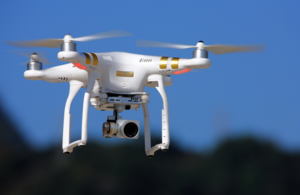|
Getting your Trinity Audio player ready...
|
The UK government has announced more than £20 million in funding to accelerate the development of eVTOL aircraft and commercial drone operations, marking a significant step forward for AAM in the country.
This investment aims to break down regulatory and technological barriers, enabling routine operations for air taxis and uncrewed aerial vehicles (UAVs) while enhancing economic growth, sustainability, and public services.
Aviation Minister, Mike Kane, said, “I want the UK to have the most advanced aviation technology ecosystem in the world. That means creating a nimble regulatory environment and a culture of innovation so everyone can benefit from cutting-edge transport while tackling emissions, traffic and potentially saving lives.
“Our investment alongside the new Future of Flight industry group will bring together tech experts, drone operators, flying vehicle manufacturers and local communities to identify where change needs to happen.
A substantial portion of the funding, £16.5 million, will be allocated to the Civil Aviation Authority (CAA) for the 2025-2026 period. This will support a dedicated regulatory program to facilitate beyond visual line of sight (BVLOS) drone operations and progress the integration of eVTOLs into UK airspace. Key initiatives include:
- The publication of a piloted eVTOL roadmap to establish a clear path toward commercial air taxi services.
- Development of standardized “drone pathways” to streamline regulatory approvals and operational procedures.
- Consultation on uncrewed traffic management (UTM) and Detect and Avoid (DAA) technologies, ensuring safe coexistence between crewed and uncrewed aircraft.
These measures aim to create a structured, efficient framework that will make it easier for industry stakeholders to prove safety standards, implement necessary digital infrastructure, and enable scalable AAM operations.
To complement the funding, the UK government is implementing regulatory reforms to foster innovation and reduce bureaucratic delays. The newly established Regulatory Innovation Office (RIO) within the Department for Science, Innovation and Technology (DSIT) will work alongside the Department for Transport (DfT) and the CAA to simplify approval processes. This includes:
- Introducing electronic conspicuity standards to enhance situational awareness and airspace integration.
- Accelerating airspace change approvals for drone operations, reducing the process to two years.
- Simplifying operational applications to expedite the launch of new drone and eVTOL services.
These advancements are expected to streamline the regulatory environment, allowing for faster implementation of commercial services while maintaining stringent safety standards.
Science Minister, Lord Vallance, said, “These regulatory reforms for drones – requiring all aircraft to share their location – will make drone operations safer and therefore speed up approvals, allowing them to operate near airports and simplifying their use for delivering medical supplies – while unlocking further commercial opportunities.
“This is a practical step to cut red tape and a great piece of progress for the Regulatory Innovation Office, growing the UK’s position as a world leader in emerging technologies and helping drive the growth that will deliver our Plan for Change.”
Beyond commercial applications, the funding will support the deployment of drone and eVTOL technology in critical public sectors, including:
- Healthcare: Enhancing NHS services with medical supply deliveries and remote patient monitoring.
- Law Enforcement: Assisting police forces with aerial surveillance and rapid-response capabilities.
- Infrastructure: Improving inspections of bridges, rail networks, and other essential assets.
- Emergency Services: Facilitating the use of UAVs by firefighters and paramedics to enhance response efficiency.
By integrating these advanced aerial technologies into public services, the UK government aims to improve efficiency, reduce costs, and lower carbon emissions across multiple industries.
The remaining £5 million in funding will be directed toward the Future Flight Challenge, a joint initiative between the DfT and Innovate UK. This program will support regional demonstrations and commercial pilots for drone and eVTOL applications, further proving their viability and economic potential. Additionally, the Future of Flight industry group will bring together government representatives, regulators, and industry leaders to shape policies and drive the future of AAM in the UK.
Duncan Walker, CEO of Skyports and Co-Chair of the Future of Flight industry group, said, “This additional government funding is a vital boost for the UK’s leadership in next-generation aviation. This investment will accelerate the development and deployment of innovative flight technologies, from complex drone operations to advanced air mobility solutions.
“I welcome this commitment, which will not only drive progress towards a more sustainable and connected future but also deliver significant economic benefits, high-value jobs and export opportunities across the UK. I look forward to continuing to work in close partnership with government and the regulator to turn these opportunities into reality.”
Stuart Simpson, CEO of Vertical Aerospace, added, “Flying taxis will transform the way we move — making it quicker, quieter and cleaner to travel while connecting communities and supporting essential services. The UK has an incredible opportunity to lead the world in this new era of aviation, delivering not just greener transport but real economic growth and skilled jobs.
“This latest funding is another welcome step towards seeing that ambition realised and our world-leading aircraft flying in British skies from 2028.”
With this investment, the UK government is said to be positioning the country at the forefront of AAM development. By fostering innovation, simplifying regulatory pathways, and supporting industry adoption, this funding will accelerate the transition from experimental trials to widespread deployment of eVTOLs and drones. As air taxi services and autonomous aerial logistics move closer to becoming everyday realities, the UK is set to benefit from a more efficient, sustainable, and connected transportation ecosystem.


